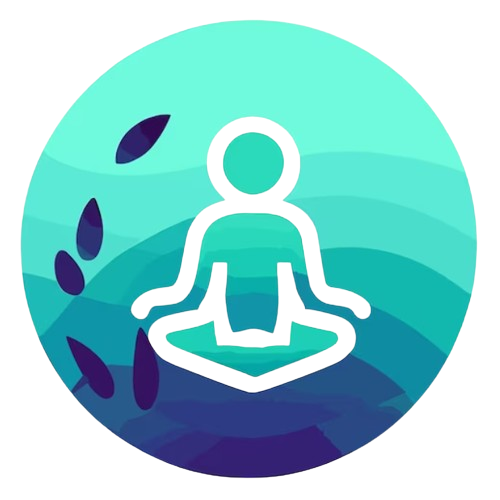35 Fun Facts About Meditation That Will Surprise You

This list of 35 interesting facts about meditation shows that there are 275 million meditators around the world, the most popular city for meditation is Melbourne, Australia, and many other meditation fun facts.
Perhaps you’ve heard meditation can make your body healthier, your mind clearer, and even physically make your brain larger! Meditation is associated with all kinds of interesting facts, benefits, and studies.
But beyond just the physical and mental, meditation can have a ripple effect through other areas of your life, like your sleep and your relationships.
No matter where you are on your meditation journey, this list of mind-blowing facts about meditation will give you the inspiration you need to keep moving!
- Meditation can make you happier. Of all the facts on meditation, this might be one of the most important. Studies have shown that meditation can help to rewire the brain for increased happiness over time. In a way, meditation helps to remove the obstacles to being happy by reducing your mental suffering. With meditation, it becomes easier to appreciate the present moment with gratitude.
- About 275 million people in the world meditate. India, the United States, and China have the highest number of meditators in the world.
- Australia is the most popular country for meditation. According to Google Trends, there are more searches per capita for meditation in Australia than in any other country on the planet (even when comparing across multiple languages other than English).
- Melbourne is the most popular city for meditation. According to Google trends, Melbourne is the city with the highest Google searches per capita for the term “meditation” in the world (even when comparing across multiple languages other than English).
- Meditation can make you less stressed. Meditation affects stress pathways and can reduce the amount of stress you experience. Mindfulness meditation also promotes a number of skills that can lead to less stress, including self-compassion, acceptance, and staying present.
- Meditation improves your immune system. A 2012 study found higher immune system function after an 8-week meditation course
- Meditation can reduce pain. A study in 2015 found that meditation reduces pain more effectively than a placebo.
- Meditation can lower blood pressure. In one study, participants with pre-hypertension experienced a significant reduction in blood pressure after meditation training.
- Meditation can change your brain. Meditation has been shown to boost frontal brain activity, reduce gray matter and increase oxytocin. It can also promote physical growth in the hippocampus – meaning your brain actually gets larger.
- Meditation improves decision making. 15-minutes of meditation can help people make smarter, more rational choices, according to a 2014 study.
- Meditation enhances creativity. Meditation reduces your fear of being judged and promotes open-minded thinking. A meditation practice can positively affect creativity.
- Meditation can improve problem solving. Mindfulness meditation improves insight problem solving, which are those “aha!” solutions to complex problems.
- Meditation can improve your relationship. Fun fact about meditation: it might save your relationship! You could see improvements in relationship happiness by practicing meditation, according to a 2004 study at the University of North Carolina.
- Meditation can help treat substance abuse. Studies have shown that meditation and mindfulness interventions can be more effective than standard relapse-prevention programs or 12-step programs.
- Meditation can reduce bias. Meditation meditation can reduce implicit bias, according to a 2014 study.
- It’s ok to scratch itches during meditation. That’s right! It’s totally fine.
- Meditation improves your focus. People who meditate can more easily shut out distractions and maintain focus during complex tasks that require their full attention, according to a 2011 study.
- Meditation helps you stay present. Our minds are lost in thought 47% of the time, but meditation can improve this.
- Meditation can help you forgive yourself. Often, we hold onto baggage from the past throughout our lives. Meditation can help us let go and release ourselves.
- Meditation feels different for everyone. Meditation is an intensely personal experience, and while it can feel easy and positive one day, it can feel hard and taxing the next. The trick is to keep going and avoid judging your experience.
- Meditation isn’t religious. Although meditation has its roots in religious tradition, meditation as practiced today is a secular set of tools that can help reduce stress and improve well-being.
- There are hundreds of types of meditation practices. With dozens of meditation exercises and hundreds of types of meditation practices, meditation is incredibly diverse.
- World Meditation Day is May 21. Each year, World Meditation Day falls on May 21.
- It’s possible to meditate in a noisy place. You can use the noises you hear as objects of meditation. You can also just use headphones.
- Google offers daily meditation sessions to its employees. The program is called Search Inside Yourself. It’s intended to help Google’s employees be happier and less stressed.
- There are more than 1,000 meditation apps available. Calm is the most popular meditation app by downloads and revenue. It’s followed closely by Headspace.
- Meditation is over 2,500 years old. Originating in India, it was popularized in the 20th century by Thich Nhat Hanh and Jon Kabat-Zinn.
- Meditation is a skill. Meditation isn’t something you can or can’t do. Rather, like piano or basketball or anything you get good at, meditation is something you get better at with practice.
- Most meditators learn through an app, a book or a course. 15% of UK adults learned meditation through one of these methods, according to a 2018 survey.
- 35% of meditators aim to reduce stress. It’s one of the most common reasons to pursue meditation, according to surveys. (2019)
- More kids are practicing meditation. Nearly 5% of kids in the United States were meditating and practicing meditation as of 2017. (NCHS)
- The goal of meditation differs for everyone. But most agree that a core goal is to build awareness, increase peace, grow your sense of calm, and improve your ability to live in the present moment.
- Experienced meditators tend to sleep less: Although meditation doesn’t replace a night of sleep, experienced meditators who participate in meditation studies often need less sleep than new meditators do, or those who don’t practice.
- Meditation teaches you how to “suffer well”. According to the Buddhist monk Thich Naht Hanh, the art of happiness is also the art of suffering well; not just through big, difficult moments, but through all those small moments in a day when things don’t quite go your way.
- Meditation can increase your performance. Studies have looked at standardized tests, sporting competitions, and business settings, and found that meditation can improve performance by increasing focus and concentration.



